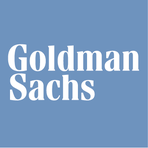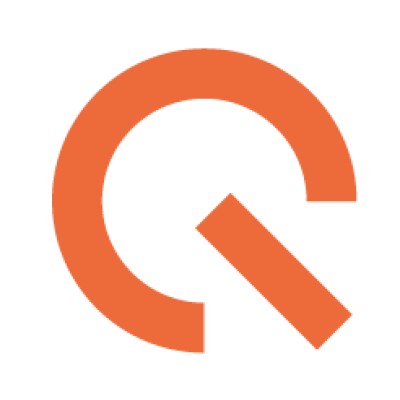The Shifting Sands of Shareholder Stakes: A Look at Recent Market Movements
March 2, 2025, 4:22 am
In the world of finance, change is the only constant. Recently, two significant transactions have caught the eye of investors and analysts alike. The Sandoz family’s decision to sell a $2.9 billion stake in Novartis and EQT’s public offering of Waystar Holding Corp. illustrate the dynamic nature of the market. These moves reflect broader trends in shareholder behavior and corporate strategy.
The Sandoz family, a name synonymous with pharmaceutical innovation, is parting with a 1.2% stake in Novartis AG. This decision comes as the family foundation, through Emasan AG, offers 26.5 million shares. The pricing is set at a 2.5% discount to the stock’s previous closing price, making the total stake worth approximately 2.6 billion Swiss francs. The market responded quickly, with demand for the shares surpassing the offering within an hour. Goldman Sachs is orchestrating this sale, a familiar name in the world of high-stakes finance.
This sale is not just a financial maneuver; it’s a strategic pivot. The Sandoz family cites diversification as the primary reason for the stake sale. In a world where financial landscapes shift like sand dunes, spreading risk is a prudent strategy. The Sandoz family remains a significant player, holding around 4.1% of Novartis after this transaction.
Novartis, a giant in the pharmaceutical industry, has a rich history dating back to 1886. It was co-founded by Edouard Sandoz and Alfred Kern. The company has evolved through mergers and acquisitions, most notably merging with Ciba-Geigy nearly three decades ago. In 2023, Novartis spun off its generic and biosimilar operations into a new entity, Sandoz Group AG. This move reflects a trend in the industry: specialization. Companies are honing their focus to enhance efficiency and profitability.
However, the timing of the Sandoz family’s sale raises eyebrows. Novartis faces a pivotal year, with several key patents set to expire. The heart medication Entresto, a top seller, is on the brink of facing generic competition in the U.S. market. This looming threat could impact Novartis’s revenue streams. The Sandoz family’s decision to sell may be a strategic retreat, a way to secure gains before potential declines.
Across the Atlantic, EQT is making waves with its public offering of Waystar Holding Corp. The offering, which raised $920 million, saw EQT sell approximately 9.8 million shares. The fund received around $393 million from this transaction. J.P. Morgan, Goldman Sachs, and Barclays played key roles as underwriters, showcasing their continued influence in the financial sector.
Waystar, a company focused on healthcare payments, is a critical player in the industry. It serves around 30,000 clients, processing over 6 billion healthcare payment transactions annually. The company’s mission is clear: simplify healthcare payments so providers can focus on patient care. In a sector where efficiency can save lives, Waystar’s software is more than just a product; it’s a lifeline.
EQT’s move to sell shares is part of a broader trend in Europe. The region has seen approximately $8.6 billion in transactions this year alone. Shareholders are capitalizing on high stock prices, a classic case of buying low and selling high. This behavior is reminiscent of a game of chess, where strategic moves can lead to victory or defeat.
The sale of stakes by major shareholders is not merely a financial decision; it reflects a shift in confidence. Investors are weighing their options, assessing market conditions, and deciding when to cash in. The Sandoz family and EQT are not alone in this. Other notable transactions include Kirkbi Invest A/S, which is selling a stake in Denmark’s ISS A/S. The landscape is shifting, and players are adjusting their strategies accordingly.
As these transactions unfold, the implications for the companies involved are significant. For Novartis, the Sandoz family’s sale may signal a need for a renewed focus on innovation and market positioning. The company must navigate the challenges of patent expirations while maintaining investor confidence. For Waystar, EQT’s public offering could provide the capital needed for expansion and innovation in a competitive market.
In conclusion, the recent movements by the Sandoz family and EQT highlight the fluid nature of the financial markets. Stake sales and public offerings are not just numbers on a balance sheet; they are reflections of strategic thinking and market dynamics. As companies adapt to changing conditions, investors must remain vigilant, ready to seize opportunities as they arise. The sands of the market may shift, but those who navigate them wisely will find success.
The Sandoz family, a name synonymous with pharmaceutical innovation, is parting with a 1.2% stake in Novartis AG. This decision comes as the family foundation, through Emasan AG, offers 26.5 million shares. The pricing is set at a 2.5% discount to the stock’s previous closing price, making the total stake worth approximately 2.6 billion Swiss francs. The market responded quickly, with demand for the shares surpassing the offering within an hour. Goldman Sachs is orchestrating this sale, a familiar name in the world of high-stakes finance.
This sale is not just a financial maneuver; it’s a strategic pivot. The Sandoz family cites diversification as the primary reason for the stake sale. In a world where financial landscapes shift like sand dunes, spreading risk is a prudent strategy. The Sandoz family remains a significant player, holding around 4.1% of Novartis after this transaction.
Novartis, a giant in the pharmaceutical industry, has a rich history dating back to 1886. It was co-founded by Edouard Sandoz and Alfred Kern. The company has evolved through mergers and acquisitions, most notably merging with Ciba-Geigy nearly three decades ago. In 2023, Novartis spun off its generic and biosimilar operations into a new entity, Sandoz Group AG. This move reflects a trend in the industry: specialization. Companies are honing their focus to enhance efficiency and profitability.
However, the timing of the Sandoz family’s sale raises eyebrows. Novartis faces a pivotal year, with several key patents set to expire. The heart medication Entresto, a top seller, is on the brink of facing generic competition in the U.S. market. This looming threat could impact Novartis’s revenue streams. The Sandoz family’s decision to sell may be a strategic retreat, a way to secure gains before potential declines.
Across the Atlantic, EQT is making waves with its public offering of Waystar Holding Corp. The offering, which raised $920 million, saw EQT sell approximately 9.8 million shares. The fund received around $393 million from this transaction. J.P. Morgan, Goldman Sachs, and Barclays played key roles as underwriters, showcasing their continued influence in the financial sector.
Waystar, a company focused on healthcare payments, is a critical player in the industry. It serves around 30,000 clients, processing over 6 billion healthcare payment transactions annually. The company’s mission is clear: simplify healthcare payments so providers can focus on patient care. In a sector where efficiency can save lives, Waystar’s software is more than just a product; it’s a lifeline.
EQT’s move to sell shares is part of a broader trend in Europe. The region has seen approximately $8.6 billion in transactions this year alone. Shareholders are capitalizing on high stock prices, a classic case of buying low and selling high. This behavior is reminiscent of a game of chess, where strategic moves can lead to victory or defeat.
The sale of stakes by major shareholders is not merely a financial decision; it reflects a shift in confidence. Investors are weighing their options, assessing market conditions, and deciding when to cash in. The Sandoz family and EQT are not alone in this. Other notable transactions include Kirkbi Invest A/S, which is selling a stake in Denmark’s ISS A/S. The landscape is shifting, and players are adjusting their strategies accordingly.
As these transactions unfold, the implications for the companies involved are significant. For Novartis, the Sandoz family’s sale may signal a need for a renewed focus on innovation and market positioning. The company must navigate the challenges of patent expirations while maintaining investor confidence. For Waystar, EQT’s public offering could provide the capital needed for expansion and innovation in a competitive market.
In conclusion, the recent movements by the Sandoz family and EQT highlight the fluid nature of the financial markets. Stake sales and public offerings are not just numbers on a balance sheet; they are reflections of strategic thinking and market dynamics. As companies adapt to changing conditions, investors must remain vigilant, ready to seize opportunities as they arise. The sands of the market may shift, but those who navigate them wisely will find success.

